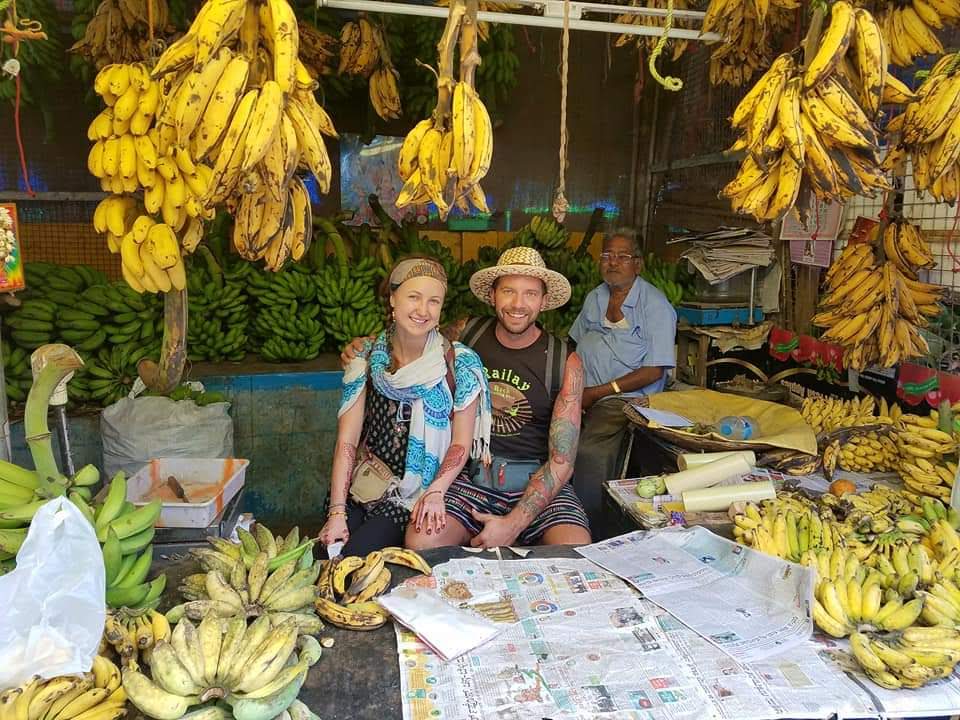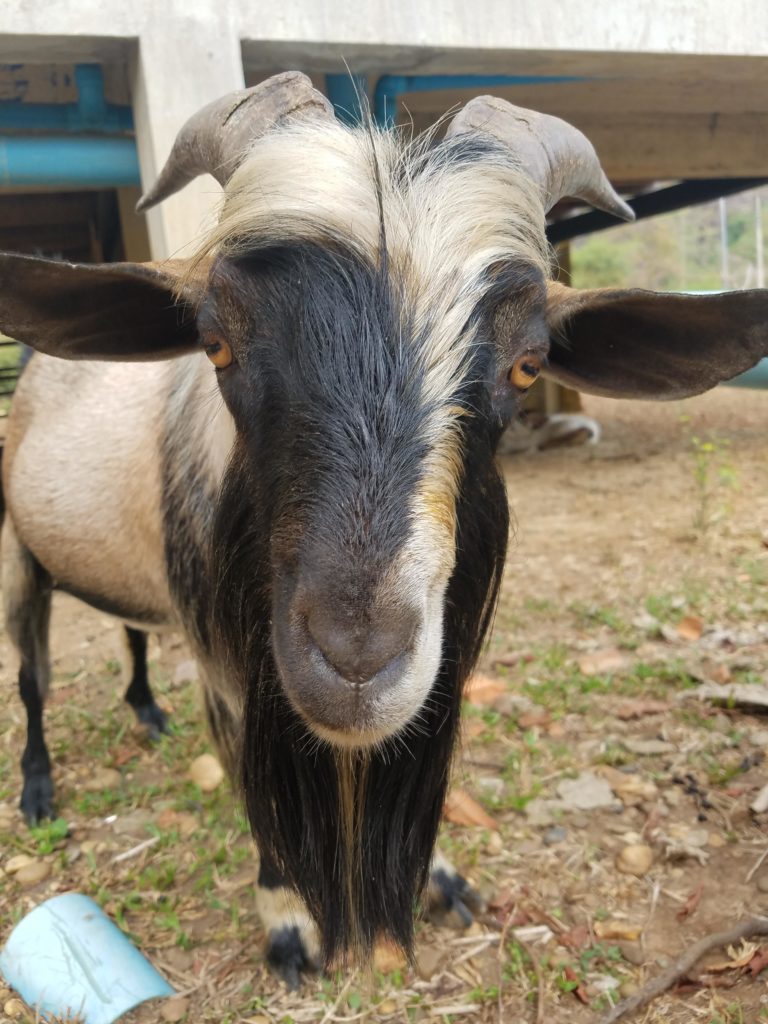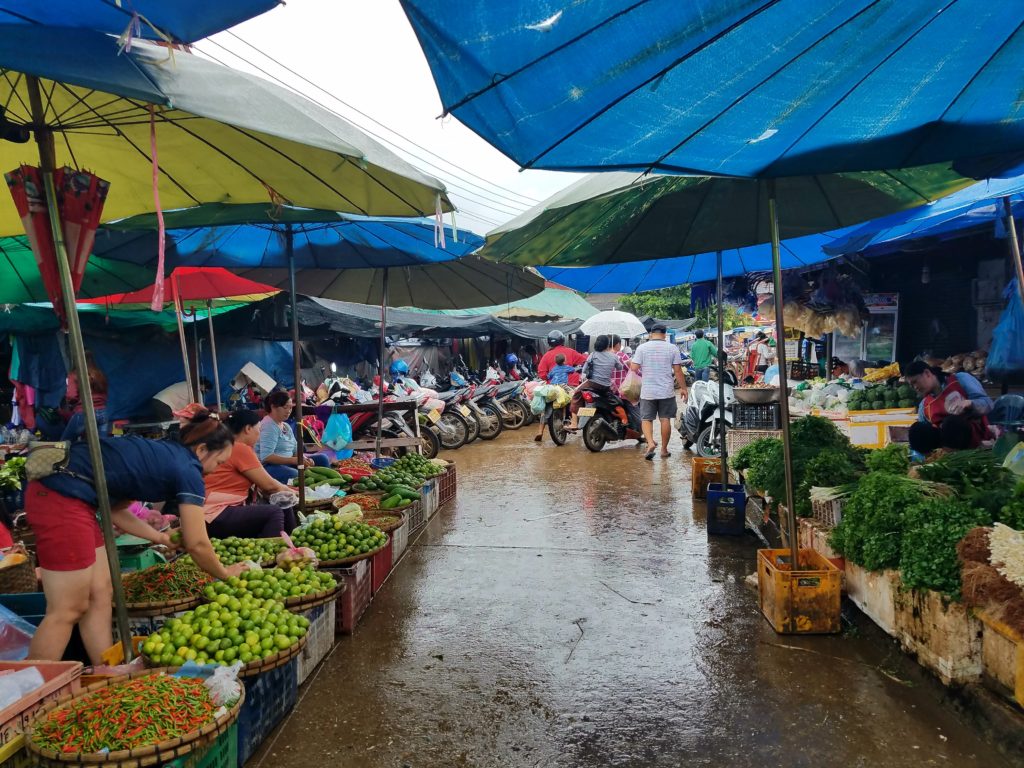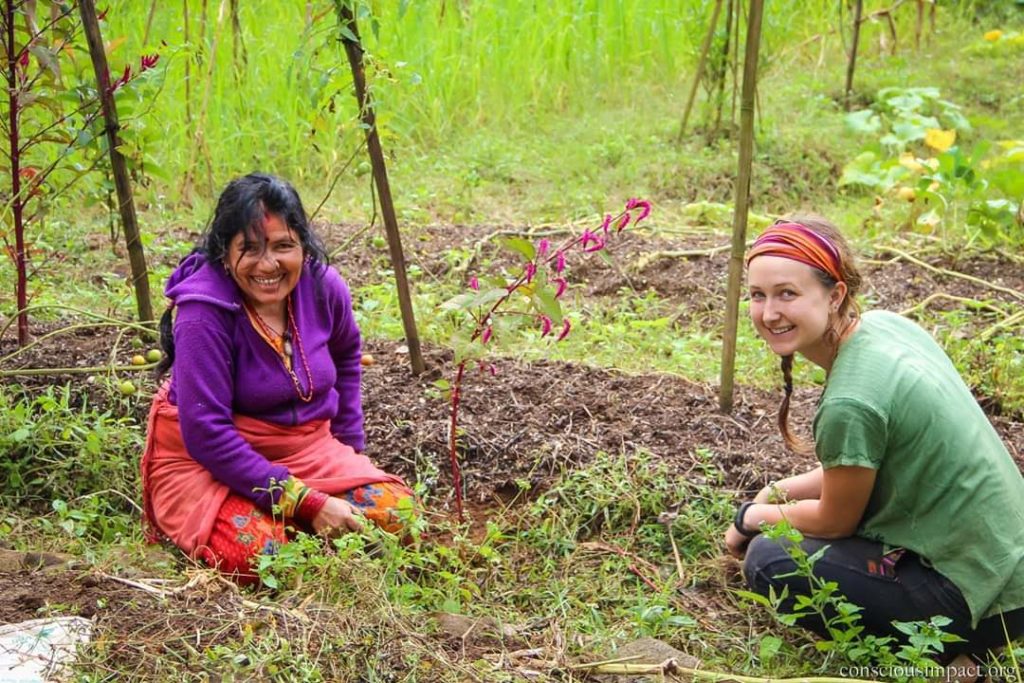What 1.5 Years in Asia Taught Me About Food
by Tayler Jenkins
of Urban Farm U
I really like food. Eating food, cooking food, harvesting food, thinking about food. Truly, I can never really get food (and food systems) off my mind.
My activism started at a young age. From encouraging neighbors to vote on animal welfare propositions in 8th grade, to co-leading the organization Real Food ASU in college, to working for Urban Farm U, to gardening and hosting potlucks in my spare time, I can reasonably say that my life revolves around food.
After 4 years with Urban Farm U, I took an extended leave to follow one of my biggest dreams: to travel to Asia on a one-way ticket in pursuit of learning, culture, adventure, personal growth and, of course, food.
(P.S… I’m recently back, managing Urban Farm U’s operations, and ready to bring more awesome urban farming inspiration your way!)
In Nepal, I’ve lived on and visited many farms, joined a fishery co-op, and volunteered in a permaculture test garden. While leading a study abroad program in Laos, I facilitated for the students to slaughter a chicken in their host village. In the 9 countries I visited, I dined with locals and tried to understand the differences between our food culture and theirs.
All the while, I battled with my own preconceived notions about food. This experience challenged much of what I had understood to be true about what’s healthy and ethical. These are a few of my personal takeaways:
Food diversity and variety is a privilege.
Growing up in middle class America, I had a plethora of food options to choose from at any given time, and the money to afford to eat organic and “trendy” health foods. I was vegetarian, and then vegan, for many years without ever feeling like I was missing out on anything. Because we have so much variety of options, plus information about conscious eating, it’s easy to pick and choose our own diets. All over the USA, people are seeking out foods that meet our individual needs, be it plant-based, organic, and gluten free to conscious omnivorous diets including grass-fed beef or humane farm eggs. Making choices like these were simply not possible for me in Asia unless I wanted to go hungry or only eat plain rice every day, and I realize now how fortunate we are in the USA to have such plentiful options for alternative diets.
Americans are disconnected from the source of our food.
This one comes as no surprise, but it was burningly apparent as I traveled through cities, villages and local markets all over Asia. Many families in small villages slaughter their own meat. In China, your seafood is alive and swimming until you order it. In Nepal, I visited a small restaurant with live chickens running around. After you order, you can watch the entire process as they scoop up, slaughter and prepare your chicken right there. The food takes a while, but how fresh is that? In China, Thailand and Laos, people eat every part of the animal. You see pig heads, pig hooves, and chicken feet at every market. All of this felt so different than my home in the USA. Here, we are choosier about which parts of the animal we eat, and our meat is prepared and packaged such that we don’t really have to think about the animal it came from. A study from the United States Farmers and Ranchers Alliance (USFRA) found that 69% of consumers think about our food production somewhat often, but 72% of us know little to nothing about farming or ranching. What are the implications on health and our food system when we know so little about where our food comes from?
Local markets are the way to go.
In the USA, farmer’s markets are often associated with expensive produce or specialty food items. But all over Asia, local markets are THE way to get groceries or eat out. They are reliably cheaper and fresher than restaurants. Cities I visited had multiple local open-air markets at least several times per week, sometimes even daily. Since people shop for food at these markets more than grocery stores, they eat more locally and seasonally than we do.
Small-scale agriculture is more prevalent in developing parts of Asia than America.
In every country I visited, agriculture was everywhere. Outside of cities, you can drive for hours and just see rice paddy after rice paddy, farm after farm. In villages, every house has a farm and livestock. My restrictive vegetarian/vegan diet, when practiced in the USA, felt like a protest to the industrial farming system. But when practiced in Asia, it felt like more of a barrier between me and local farmers, keeping me from truly immersing myself in the local culture, or supporting small farmers.
Overall, I think I’ve become a more relaxed eater from my experiences abroad. I’m a values-driven person, but I’m beginning to understand how subjective values can be, and how much they can change depending on the experiences and culture one grows up with. Life (and humanity) is too complex to follow 100% of one’s food rules 100% of the time. For instance, I can’t both create zero food waste AND be vegetarian 100% of the time, because sometimes I will inevitably be served meat and have to choose whether to eat the meat or waste food. We are all doing the best we can, and when it comes to food, the decision about what to eat is deeply personal. I’ll always be a food activist at heart, but my experiences abroad have helped me to cultivate empathy and understanding for different lifestyles and perspectives.
Through it all, I have one notion that will never change—there is nothing so rewarding as putting one’s hands in the dirt, and nothing so delicious as farm-fresh food. Now that I’m back, I’m more pumped than ever to contribute to Urban Farm U’s mission to inspiring others to reconnect with their food and create the backyard food garden of their dreams. If you’ve been waiting for the right information to come along to start your gardening journey, here’s where I would start—click here to check out the free webinar Gardening Unearthed.
UrbanFarm.org/asiatrip
About this author:
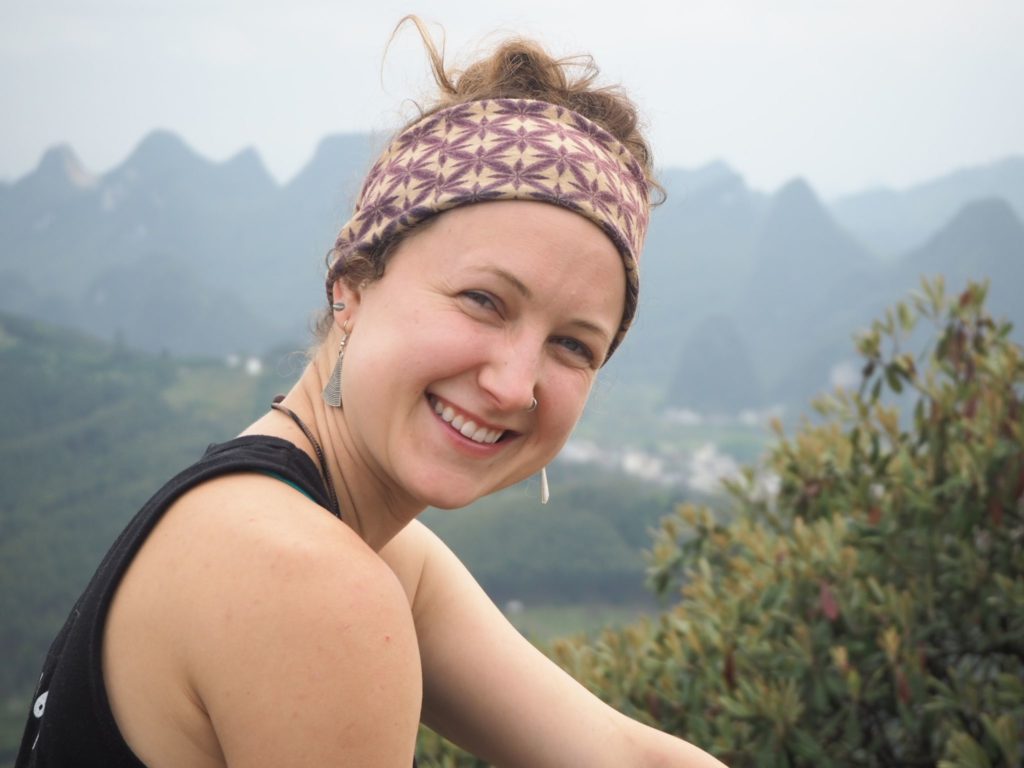 Tayler is the operations manager for Urban Farm U. An Arizona native living in Portland, Oregon, Tayler is a self-proclaimed “real foodie” interested in spreading education and awareness about healthy, ethical food. She loves to combine her interest in food systems with travel, and can’t seem to stay away from Asia, where she has spent time volunteering, living, and completing projects on farms in several countries. Tayler received her Bachelor of Science in Sustainability from Arizona State University in 2015.
Tayler is the operations manager for Urban Farm U. An Arizona native living in Portland, Oregon, Tayler is a self-proclaimed “real foodie” interested in spreading education and awareness about healthy, ethical food. She loves to combine her interest in food systems with travel, and can’t seem to stay away from Asia, where she has spent time volunteering, living, and completing projects on farms in several countries. Tayler received her Bachelor of Science in Sustainability from Arizona State University in 2015.
*Disclosure:
Some of the links in our podcast show notes and blog posts are affiliate links and if you go through them to make a purchase, we will earn a nominal commission at no cost to you. We offer links to items recommended by our podcast guests and guest writers as a service to our audience and these items are not selected because of the commission we receive from your purchases. We know the decision is yours, and whether you decide to buy something is completely up to you.


